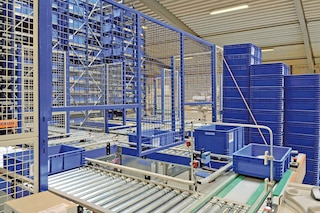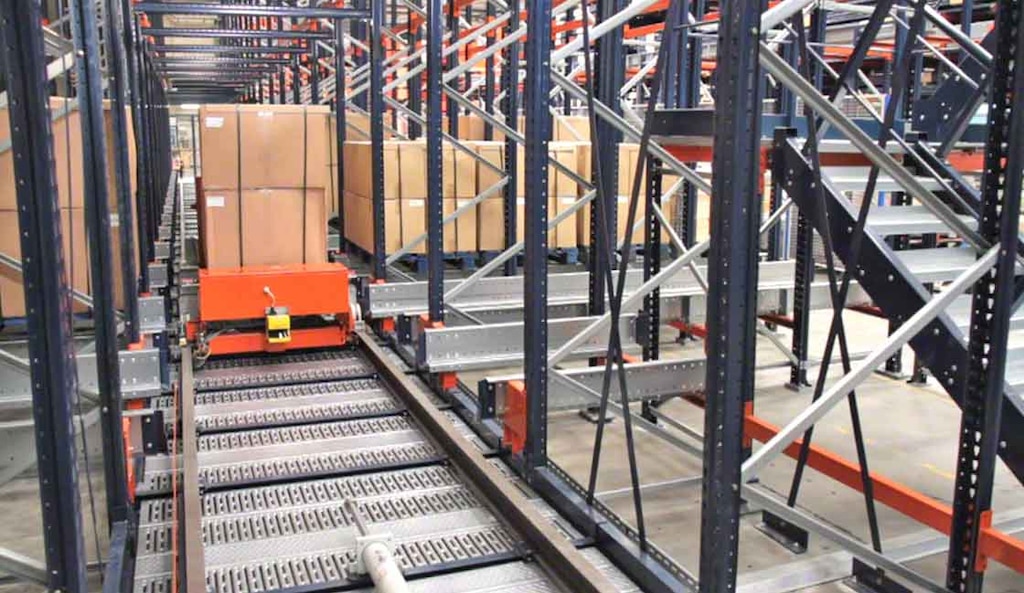
AI applications in logistics: more automation for increased efficiency
The implementation of artificial intelligence (AI) in logistics has radically changed ways of working in the supply chain. Thanks to AI, companies have gone from a reactive approach, in which logistics operations were adapted to variations in demand, to a proactive one, where managers forecast market behavior and adjust their resources accordingly. The result, of course, is boosted efficiency and maximized profitability.
But how exactly does AI work? In which warehouse operations is it most useful? We’ll answer those questions and more in this article.
AI: from algorithms to machine learning
Artificial intelligence (AI) allows systems to make sound decisions and run automated operations without any human intervention. It is based on the combination of three elements:
- Algorithms, which are ordered sequences of operations that are applied to carry out a task optimally based on particular conditions.
- Software, which gives precise instructions for the performance of each task by the hardware.
- Machine learning, that is, technology enabling the machines themselves — relying on historical data and the repetition of operations — to learn and improve processes progressively.
AI in logistics
Even though AI applications in logistics are still being developed, they are expected to reach their maximum potential within a few years. Nevertheless, some are already securing a foothold in the sector:
1. Prediction of consumer trends
AI makes use of big data for logistics purposes: it cross-references internal information, such as sales figures, with data extracted from forums, social media and other internet sources. Thus, it can make deductions about users’ consumption intentions and predict demand behavior. This serves to implement anticipatory logistics, which avoids stockouts and the storage of excess goods. In short, it prevents you from squandering your resources.
2. Automation of product movements throughout the warehouse
One of the best examples of AI in logistics is automated warehouses. They combine two fundamental systems: warehouse automation and warehouse management software. Together, they perform product transportation and placement operations autonomously.
This work-sharing generates patterns over time that are continuously analyzed. In this way, AI helps these systems to better assign resources and correct movements in the event of changes to conveyor circuits.

3. Selection of transportation routes and the most efficient movements
AI greatly simplifies the coordination of logistics transportation, which has a twofold mission:
- Management of intralogistics movements: the warehouse management software saves a digital snapshot of the company’s installations and registers all movements. It processes these data and organizes goods movements, whether they are carried out by robots or automated systems, such as operators aided by handling equipment.
- Management of goods transport fleets: AI interprets up-to-date traffic information and incorporates it into the on-site systems. Using this data, the software maps out the most suitable routes for delivering the various orders; it also adjusts itineraries in real time if any incidents occur.
4. Stricter control over supply chain data
The automation of supply chain processes — enhanced by AI — opens the door to managing inventory in real time, issuing supply orders instantly and monitoring orders precisely. Warehouse management software, such as Easy WMS by Mecalux, makes it easier to program all these actions in the installation’s day-to-day operations.
In addition, data integration and improved traceability systems mean that you can satisfy users’ “need to know.” For example, the typical “Where’s my order?” question about a package purchased via an e-commerce company can be resolved quickly and effectively by implementing AI chatbots.
Advantages to using AI in logistics
Thanks to AI in logistics, the risk of errors is reduced. As a result, the supply chain operates with greater precision, less inefficiencies are produced, and most repetitive actions are left to the automated systems that learn over time. By contrast, creative processes and strategic decision making are in the hands of humans.
